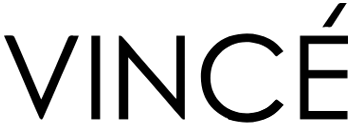Forehead Acne Causes and Treatment

People can develop pimples and acne on the forehead when small glands under the skin's surface become blocked. Acne most often forms on a person's forehead, although it can develop anywhere on the body.
Hormonal changes, stress, and poor hygiene are common triggers of acne. This condition does not pose a severe health risk, but people may think it looks unpleasant and can cause discomfort.
This article looks at what causes acne and pimples to develop on the forehead and how they can be treated and prevented.
What are The Causes of Forehead Acne?
- These are the major causes of Forehead Acne:
- Puberty
- Bad cosmetics
- Dandruff and greasy scalp
- Popping Zist
- Digestive Problems
- Stress
- Over Exfoliating
1. Puberty
Many people develop acne during puberty. Increased hormone levels increase oil production, which causes pimples. The forehead is the most common place for these initial breakouts.
2. Bad Cosmetics
Forehead acne can be caused by specific makeup or hair products that may not suit you. Chemicals in some shampoos, sprays, or gels can drip through your hair and irritate sensitive skin, leading to clogged pores and reactive acne breakouts.

The presence of lanolin can cause acne on the face, a specific ingredient found in your foundation. When the pores become clogged with such irritating ingredients, they try to expel themselves, resulting in acne breakouts.
3. Dandruff and Greasy Scalp
Dryness and excess oil can clog skin pores, leading to pimples and zits. Dandruff is the most common cause of forehead acne.

There are many treatments and creams available to treat acne caused by dandruff. However, there are many natural, chemical-free methods; it is better to opt for home remedies.
4. Popping Zits
We know how frustrating acne can be, but popping zits can spread bacteria and cause even more acne.

You may constantly touch your face to exfoliate blemishes or remove blackheads, which can only aggravate the condition.
5. Digestive Problems
Due to the functions of the digestive system, we can absorb all the beautiful nutrients from our food, and it also helps remove toxins.
Many studies show that gastrointestinal discomforts such as constipation, heartburn, and bloating are likely associated with acne since the skin is your largest organ. When something goes wrong internally, problems like acne, dermatitis, etc.
5. Stress
It has been found that more oil (sebum) is produced when stressed, which clogs hair follicles and allows more acne to form.
The body responds to stress by directing blood flow and oxygen to the areas needed to fight the stress and withdrawing it from other areas, including the skin.
The skin is eventually deprived of blood and oxygen, leaving it dehydrated, dull, lifeless, and prone to clogged pores and acne.
6. Over Exfoliating
Exfoliation helps remove dead skin cells, but overdoing it can cause acne and irritation.
Even beauty experts worldwide will tell you that exfoliation is the best way to remove dead skin cells, rejuvenate your skin and bring back your natural glow. It is best to limit it to twice a week.

How to Treat Forehead Acne ?
These are the best ways to treat forehead acne.
- Apply Apple Cider Vinegar
- Honey and Cinnamon Mask
- Spot Treat with Tea Tree Oil
- Apply Green Tea to Your Skin
- Moisturize With Aloe Vera
- Take a Fish Oil Supplement
- Take a Zinc Supplement
1. Apply Apple Cider Vinegar
Apple cider vinegar makes with unfiltered juice from pressed apples. As with other vinegar, research has noted its ability to fight many bacteria and fungi.
Apple cider vinegar contains organic acids. Citric acid combined with zinc oxide was found to kill acne. The lactic acid in apple cider vinegar can also improve the appearance of acne scars. Although some components of it may help with acne, there is no evidence to support its use.
How to Use Apple Cider Vinegar
- Mix 1 tablespoons apple cider vinegar and 3 tablespoons water (you can use more water according to skin sensitivity).
- After cleansing, gently apply the mixture to the skin with a cotton ball.
- Apply for 5 to 20 seconds, rinse with water, and pat dry.
- Repeat this process probably 3 to 4 times a day as needed.
It's important to know that applying apple cider vinegar to your skin can cause irritation and burns. Most dermatologists do not recommend it. If you try it, use a small amount and dilute it with water.
2. Honey and Cinnamon Mask
A study found that a combination of honey and cinnamon bark extract had antibacterial effects against acne. Honey can kill the growth of acne and effectively treats acne.
Although honey and cinnamon's anti-inflammatory and antibacterial properties may reduce acne.
How to Use Honey and Cinnamon Mask
- Make a mixture of 2 tablespoons of honey and 1 teaspoon of cinnamon.
- After cleansing, you have to apply the mask to the face. Leave it for 15 to 20 minutes.
- Rinse off the mask thoroughly and pat your face dry.
3. Spot Treat with Tea Tree Oil
Tea tree oil is an essential oil extracted. The use of tea tree oil on the skin can reduce acne breakouts.
According to a study, tea tree oil may be an effective alternative to topical and oral antibiotics that can lead to bacterial resistance when used long-term. Tea tree oil is powerful; always dilute it before applying it to the skin.
How to Use Tea Tree Oil
- Mix 1 tablespoon tea tree oil with 9 tablespoons of water
- Dip a cotton swab in this mixture and apply it to the affected areas.
- Apply moisturizer if desired.
- Repeat this process 2 to 3 times a day as needed.
4. Apply Green Tea to Your Skin
Green tea is high in antioxidants, and drinking it is suitable for health. It can also help reduce acne. According to a study, green tea helps fight bacteria and reduce inflammation, these are the two of the leading causes of acne.
The use of green tea on the skin may also be beneficial. Green tea extract on the skin significantly reduced sebum production and pimples in acne sufferers.
You can buy lotions and creams that contain green tea, but it's just as easy to make your concoction at home.
How to Use Green Tea
- Steep green tea in boiling water for 4 to 5 minutes
- After that, let it cool.
- With the help of a cotton ball, apply the tea to your skin or put it in a spray bottle and spray it on.
- Let it dry, wash it off with water, and pat your skin.
5. Moisturize With Aloe Vera
Aloe vera is a tropical plant, and the leaves of Aloe vera produce a clear gel. The gel is often added to creams, lotions, ointments, and soaps.
According to research, it is commonly used to treat:
- Abrasions
- Rashes
- Burns
- Wounds
- Skin inflammation
Aloe vera contains salicylic sulfur and acid, which are widely used in treating acne. Using salicylic acid on the skin reduces acne breakouts.
It indicates aloe vera gel can improve acne when combined with other substances such as tretinoin cream or tea tree oil.
Although research shows promise, the anti-acne benefits of aloe vera itself require more scientific research.
How to Use Aloe Vera
- Scrape the gel from the aloe vera with a spoon.
- You can apply that gel directly to clean skin as a moisturizer.
- Repeat 1 to 2 times a day.
- You can also get aloe vera gel from the market, but ensure it is pure aloe vera without any ingredients.
6. Take a Fish Oil Supplement
Omega-3 fatty acids have healthy fats, and they offer many health benefits. Fish oil contains two primary omega-3 fatty acids: eicosapentaenoic acid (EPA) and docosahexaenoic acid (DHA).
A study found that high levels of EPA and DHA may reduce inflammatory factors and the risk of acne. You can also get omega-3 fatty acids from:
- Salmon
- Sardines
- Anchovies
- Walnuts
- Chia seeds
- Ground flax seeds
- Fish oil supplements
7. Take a Zinc Supplement
Zinc is an essential nutrient and necessary for cell growth, hormone production, metabolism, and immune function. It has been relatively well studied compared to other natural acne treatments.
Too much zinc can cause adverse effects, including stomach pain and intestinal irritation. It is also important to note that applying zinc to the skin is inadequate. It may be because zinc is not absorbed efficiently through the skin.
Forehead lines are a normal and inevitable part of aging. If you are facing Forehead lines issue. Then read these best ways to get rid of forehead lines and make your skin smooth and soft.
How to Prevent Forehead Acne?
While there's no perfect way to get rid of acne forever, there are habits you can incorporate into your routine that can help keep breakouts at bay. Here are some ideas:
- Wash your face correctly: It is essential to remove excess oil, dirt, and sweat daily to help prevent acne.
- Use a moisturizer: Even with acne, it's essential to keep your skin hydrated. When skin is dry, it produces oil to maintain balance, resulting in excess sebum and clogged pores.
- Limit makeup: Using too much makeup can clog pores and trigger breakouts. If you use makeup, make sure it's fragrance-free and non-comedogenic to prevent skin irritation. Always wash off makeup, especially before going to bed.
- Resist touching your face: Touching your face can transfer bacteria and pore-clogging impurities to your skin.
- Limit sun exposure: Frequent sun exposure dehydrates the skin, which over time causes it to produce more oil and clog pores.
- Do not puncture the lungs: Puncturing the lungs can cause bleeding, severe scarring, or infection. It can also increase inflammation and clog pores, worsening your pimple problem.
Conclusion
Forehead acne often looks like solid red spots called papules. No matter where you get acne, it's essential to treat it properly. You can use over-the-counter (OTC) or prescription medications to help clear up acne more quickly. Avoid picking your pimples to avoid scarring.























